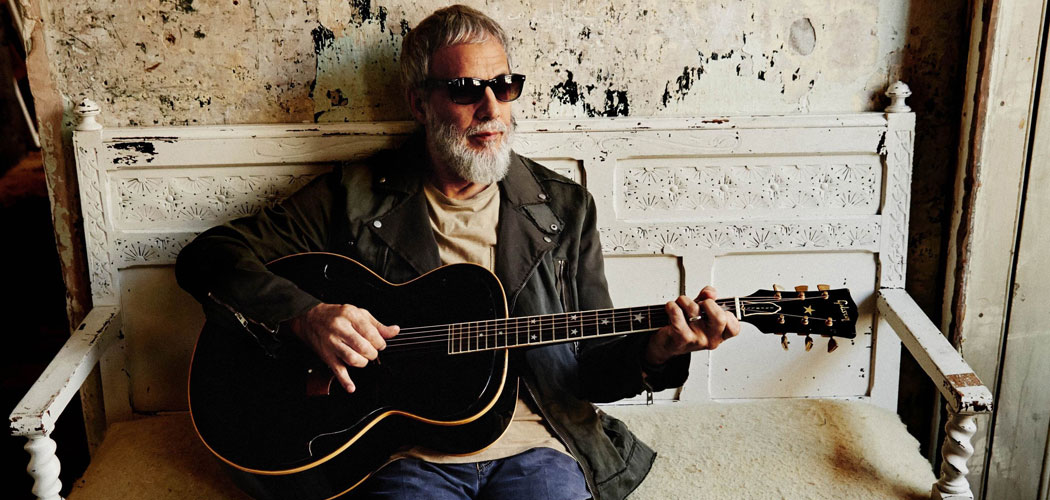Advertisement
The (Former) Cat Stevens That Many Diehard Fans Have Been Waiting For

For better or for worse, musical comebacks are something that fans have become accustomed to. Artists in their 30s regularly announce comebacks, while Cher is now in at least the sixth or seventh iteration of her farewell tour. Some comebacks are misguided and over-hyped, while others have helped an artist return to form. Few expected the success of Elvis’s “Comeback Special” of 1968 or Johnny Cash’s return to relevancy in the ‘90s.
The devoted fans of English folk rock musician Cat Stevens had long given up hope that they would ever get to see his Peace Train pull back in to Boston one more time. However, almost 40 years since his last Boston show, Stevens (known as Yusuf Islam since his conversion to Islam) will take the stage to a sold-out crowd at the Citi Performing Arts Center Wang Theatre this Sunday evening.
Islam, who was born Steven Georgiou in England in 1948, hit the popular music scene as baby-faced pop star Cat Stevens in 1966. The singer received instant success with hits like “Here Comes My Baby”, “I Love My Dog” and the massive hit “The First Cut is the Deepest.”
Following a near fatal bout of tuberculosis in 1969, Islam’s music took a sharp turn from pop to a more thoughtful brand of folk rock. Over the next decade, he strung together a score of hits including “Wild World,” “Peace Train,” “Moonshadow” and “How Can I Tell You.” He created the soundtrack to the 1971 cult classic “Harold and Maude,” and successfully toured the world several times.
In 1976, however, a day of swimming off the coast of Malibu, California, changed the trajectory of Stevens’s career. While nearly drowning, he claims he shouted, “Oh God! If you save me I will work for you.” And at that moment, he says he was brought to shore by a wave.
The experience sent him into a period of spiritual exploration, and soon after his brother gave him a copy of the Quran. He began to study the readings and in 1977 formally converted to Islam. In 1978, he changed his name to Yusuf Islam and left music altogether for 25 years.
In his years away from music, he has dedicated his time and energy to spirituality and philanthropic work, and a great deal to defending his image and intentions. In 1989, Islam made public statements supporting the Iranian fatwa calling for the death of author Salmon Rushdie. Islam has subsequently said he was misinterpreted. In 2000, Islam was denied entry to Israel for allegedly making donations to Hamas. The singer has said he never knowingly supported the Palestinian group. In 2004, his flight from London to Washington, D.C., was grounded when it was discovered mid-air that he was on a government no-fly list. He has since been able to freely enter the U.S. without issue.
The controversies largely kept Islam out of music and performing until 2006 when he returned with “An Other Cup,” his first collection of studio songs since “Back to Earth” in 1978. He followed up with “Roadsinger” in 2009.
Advertisement
However, 2014 has become Islam’s second musical coming out. In April, he was inducted into the Rock and Roll Hall of Fame, which included a special performance at the Barclays Center in Brooklyn. This fall, he published “Why I Still Carry a Guitar,” a memoir about his journey, and announced a brand new album of bluesy folk music, “Tell ‘Em I’m Gone,” and a five-city U.S. tour, his first in nearly four decades.
“I've been a bit slow in coming around to the United States, but there were so many people asking me to do that, that I just felt an obligation," Islam told The Associated Press in September.
The new album explores an unexpected side from Islam. There are, of course, heavy undertones of the soul-searching spiritualist that fans have come to know and love, but there are also moments of rock and blues that are surprising for a man who is nearly 70.
New songs like “Big Boss Man and “Gold Digger” are welcome reintroductions of electric guitar back to Islam’s arsenal, while folk ballads like “Cat and the Dog Trap” are examples of the quiet reflections on the world that many diehard fans have been waiting for from the artist’s return.
A cover of Edgar Winter’s hit “Dying to Live” is a quick and poignant example of Islam at his best. Winter’s version is a beautiful personal monologue about the struggles of world around him, while Islam’s less orchestral version seems to be a call to action for the listener to pay closer attention to our role in a chaotic and violent world.
This article was originally published on December 05, 2014.